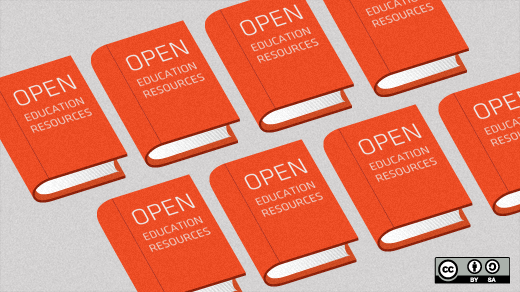Education and open science hackathon guide | opensource.com. – This article is from March 2013 and it provides some good ideas for organizing and running an open education hackathon. A course sprint that bring s subject matter experts together with tech and design people sounds like a good way to jump-start an open education resource project.
CNN Money Takes Notice of Open Source Textbook Publishers, Misses eLangdell
Ideally, the major publishers, the free education players, and the open source firms will end up egging each other on, upping the ante at each step of the way, and ultimately benefiting students and teachers. After all, why cant it play out like the way open-source Linux helped propel advances from Microsoft MSFT and Apple AAPL? “I think there will always be what I think is a healthy relationship between publishers and the open-source world. They push each other forward. They challenge each other. Competition is good,” says Wiley.
via Startups are about to blow up the textbook – Fortune Tech.
Open educational resources get the focus in this article. CK-12 gets the most ink, while challenges to traditional publishers are nicely laid out. Articles like this are great because they bring info about OER to audiences that wouldn’t hear about it otherwise.
In the legal education arena, CALI‘s eLangdell project, especially the eLangdell Press , provides OER for law schools. eLangdell Press provides free and open access to over a dozen titles including casebooks, Federal rules, and statutory supplements.
Feds Launch Learning Registry To Improve Discoverability of OER
The Learning Registry addresses the problem of discoverability of education resources. There are countless repositories of fantastic educational content, from user-generated and curated sites to Open Education Resources to private sector publisher sites. Yet, with all this high-quality content available to teachers, it is still nearly impossible to find content to use with a particular lesson plan for a particular grade aligned to particular standards. Regrettably, it is often easier for a teacher to develop his own content than to find just the right thing on the Internet.
The Learning Registry is a joint Department of Education + Department of Defense project to provide a common infrastructure for providing discoverable metadata for OER. The goal is to help the teacher locate the “just right” education content that is freely available on the web. Rather than just being yet another portal the Learning Registry is designed as infrastructure with community members running registry nodes that feed metadata and paradata back to other nodes all via a set of open APIs.
This seems like an excellent step toward solving the discovery problem that seems to plague OER. It also presents a opportunity for folks creating OER in the law school community to create a Learning Registry node for law school OER.
U.S. Dept. of Ed. Reaffirms OER Support, Highlights Competency-Based Assessment | EDUCAUSE
http://www.educause.edu/blog/jcummings/USDeptofEdReaffirmsOERSupportH/241218
Last week, Under Secretary of Education Martha Kanter led an education policy briefing at U.S. Department of Education headquarters that put a spotlight on the department’s support for open educational resources (OER). Joined by two of her senior policy advisors long associated with the OER movement, Hal Plotkin (journalist and former president of the Foothill-De Anza Community College District board) and Joel Thierstein (former executive director of the OER organization, Connexions), as well as by the director of the department’s Office of Educational Technology, Karen Cator, Kanter spoke at length about the importance the department places on the continued development of OER.


